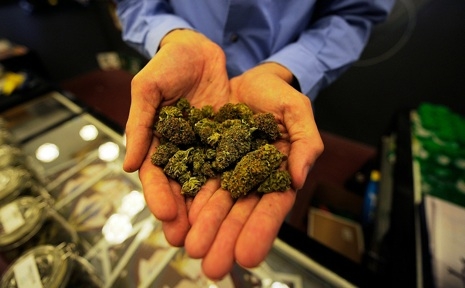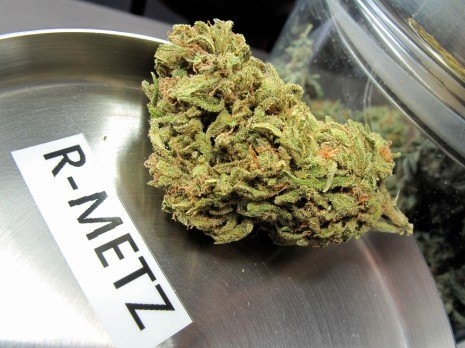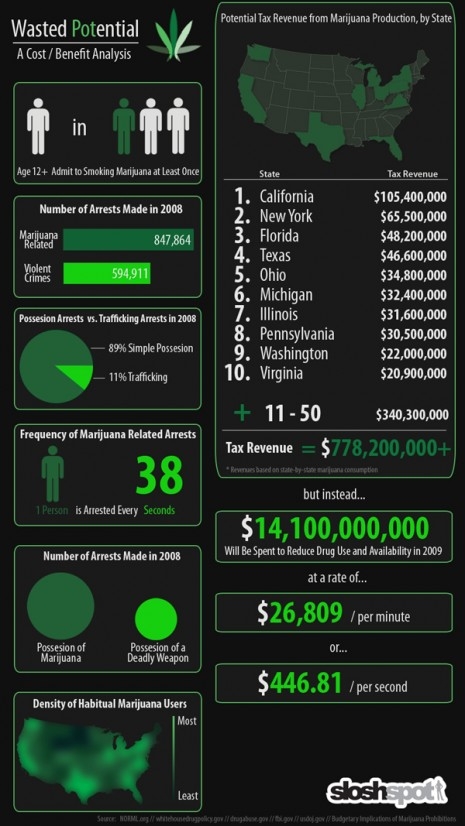
Photo by Kevork Djansezian from The Big Picture
According to several polls, the presence of marijuana reform initiatives on the ballet in states in the west, will probably bring many younger Democrats to the voter’s booth who might have decided to sit this mid-term election out, otherwise. I’m definitely looking forward to casting an affirmative vote for Prop 19 and I hope all of my fellow Californians reading this will chose to do the same.
Unofficial state estimates indicate that California’s cannabis crop is worth more—far more!—than the state’s wine industry. I’m confident that Prop 19 is going to pass. To leave tax money on the table isn’t something the state can afford to do right now. Besides that, legalization, according to a RAND Corp. study, could cause pot prices to drop considerably, something that will be seen as additional welcome economic relief to millions of the state’s unemployed tokers…
The most persuasive argument for legalizing pot might just be a dollar sign.
California’s pot crop is worth $14 billion, according to a state report. The Press Democrat points out that crushes the wine crop which comes in at $2 billion.
Legalization would be a huge shot in the arm for plenty of ancillary industries, such as banking and construction.
Of course, there’s always the possibility that the federal government would crack down. That risk might make investors too skittish to get involved. Earlier this month, Attorney General Eric Holder announced that the government would continue its dangerous raids.
Some regions, such as Mendocino County, have leaned on pot agriculture as other industries dried up. It’s estimated that at least half of that county’s economy depends on cultivation of the plant. [Half? Try three-quarters!—RM]
The only sure thing is that there’s no sure thing. Marijuana legalization is uncharted territory. Or at least, it’s uncharted in this country. Other countries have managed to figure it out, but here in The Land of the Free, we’ve clung to prohibition.
Earlier, the state estimated that it could rake in $1.4 billion in taxes if Prop 19 passes, but they’ve since backed off that estimate, claiming that there are too many unknown variables. Prop 19 would allow each individual municipality to set its own pot regulations, which some detractors have said will create an unwieldy patchwork of laws. Coincidentally, most of those who oppose legalization are those who make money from prohibition: law enforcement agencies and the alcohol industry.
Marijuana Crushes Grapes as Cash Crop (NBC Bay Area)












